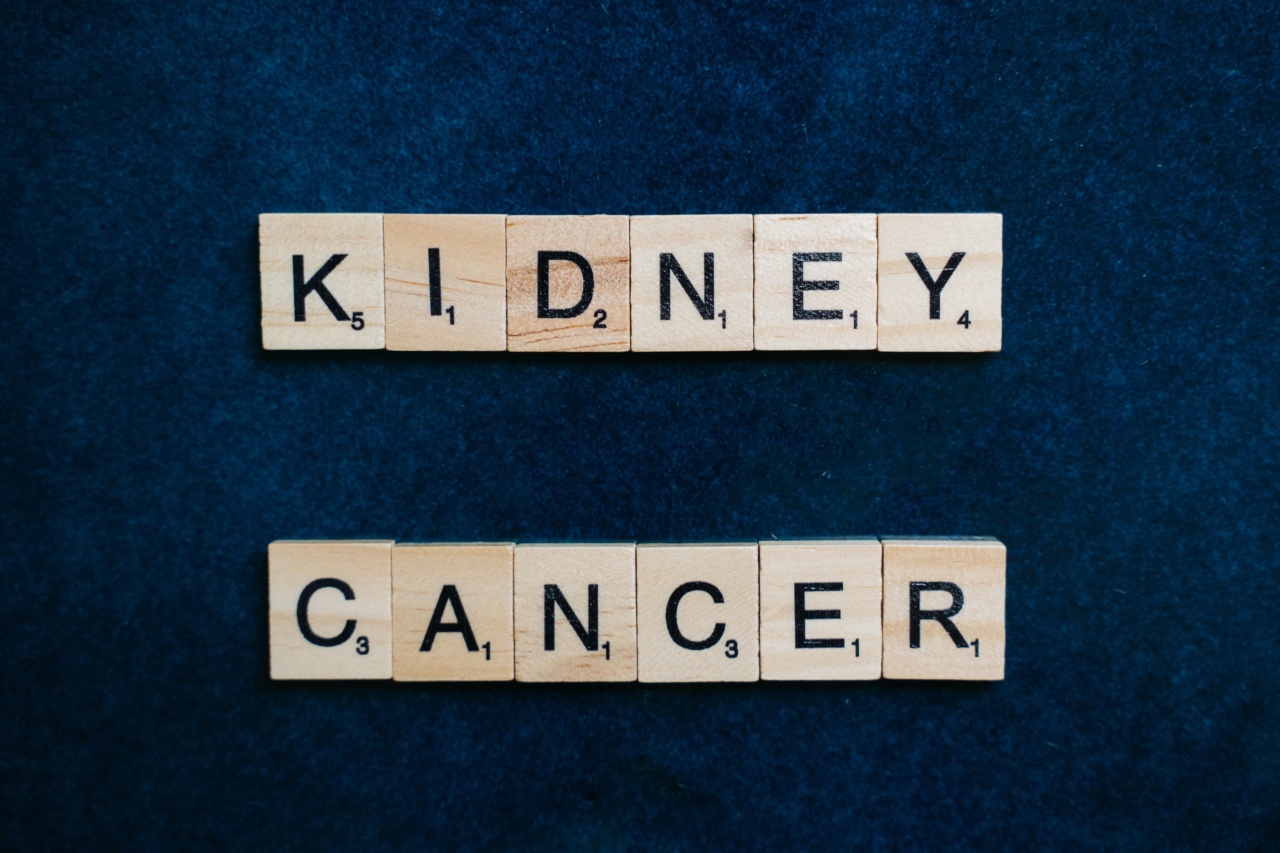Kidney cancer, also known as renal cell carcinoma, is a type of cancer that starts in the cells of the kidneys. It is one of the most common types of cancer in both men and women.
Recognizing kidney cancer early is crucial for successful treatment and improved prognosis. In this article, we will discuss the signs and symptoms of kidney cancer, risk factors, screening methods, and the importance of early detection.
Signs and Symptoms of Kidney Cancer
Early-stage kidney cancer may not cause any noticeable signs or symptoms, and it is often detected incidentally during medical imaging tests for other conditions. However, as the disease progresses, the following signs and symptoms may occur:.
Blood in the Urine
One of the most common signs of kidney cancer is blood in the urine, also known as hematuria. The urine may appear pink, red, or cola-colored. Hematuria may be intermittent or persistent and is usually painless.
If you notice blood in your urine, you should consult a healthcare professional for further evaluation.
Back or Side Pain
Persistent pain in the lower back or on the side of the affected kidney is another common symptom of kidney cancer. The pain may be dull and constant or sporadic, and it can sometimes radiate to the abdomen or groin.
If you experience persistent back or side pain, it is essential to seek medical attention for a proper diagnosis.
Unexplained Weight Loss
Unintentional weight loss is often associated with several cancer types, including kidney cancer.
If you notice a significant and unexplained weight loss without changes in diet or exercise, it is important to have it evaluated by a healthcare professional to rule out underlying causes, including kidney cancer.
Fatigue and Weakness
Feeling constantly fatigued and weak can be a symptom of various health conditions, including kidney cancer. The cancerous growth in the kidneys can affect the production of red blood cells, leading to anemia.
Anemia can cause persistent fatigue, weakness, and shortness of breath. If you are experiencing these symptoms, it is necessary to consult a healthcare professional for appropriate evaluation.
Other Less Common Symptoms
In addition to the above-mentioned symptoms, kidney cancer may also present with the following less common signs:.
Loss of Appetite
General Malaise.
Night Sweats.
Fever.
Swelling of the Lower Legs.
High Blood Pressure.
Risk Factors for Kidney Cancer
Although the exact cause of kidney cancer is unknown, certain factors can increase the risk of developing this disease. These risk factors include:.
Smoking
Cigarette smoking is one of the leading causes of kidney cancer. Smokers are at a higher risk of developing kidney cancer compared to non-smokers. Quitting smoking can significantly reduce the risk and improve overall health.
Obesity
Obesity is associated with an increased risk of kidney cancer. Maintaining a healthy weight through a balanced diet and regular physical activity can help reduce the risk of developing kidney cancer.
High Blood Pressure
Having high blood pressure, also known as hypertension, can increase the risk of kidney cancer. Managing blood pressure levels through lifestyle modifications or medication can help lower the risk.
Family History
Having a close relative, such as a parent or sibling, with kidney cancer increases the risk of developing the disease. In some cases, kidney cancer may be linked to inherited gene mutations.
Exposure to Certain Chemicals
Exposure to certain chemicals, such as asbestos, cadmium, and organic solvents, may increase the risk of kidney cancer. Occupational exposure to these chemicals should be minimized or avoided whenever possible.
Screening and Early Detection
Screening for kidney cancer is not routinely performed in the general population because there is currently no evidence to support the effectiveness of screening tests in reducing mortality.
However, individuals who are at a higher risk of developing kidney cancer, such as those with a family history or occupational exposure to chemicals, may benefit from regular screenings.
Imaging tests, such as ultrasound, CT scan, or MRI, are commonly used to visualize the kidneys and detect any abnormalities. These tests can help identify tumors or other conditions that may require further evaluation.
The Importance of Early Detection
Early detection of kidney cancer greatly improves the chances of successful treatment and long-term survival.
When kidney cancer is diagnosed at an early stage, the tumor is usually small and localized, making it more treatable through surgical removal or other targeted therapies.
If kidney cancer has spread to nearby lymph nodes or distant organs, the prognosis becomes poorer, and the treatment options may include surgery, radiation therapy, chemotherapy, targeted therapy, or immunotherapy.
However, the success rate of these treatments decreases as the cancer advances.
Conclusion
Recognizing kidney cancer early is crucial for better treatment outcomes. Being aware of the signs and symptoms, understanding the risk factors, and seeking medical attention for evaluation are vital steps in the early detection of kidney cancer.
Although routine screening is not recommended for the general population, individuals at a higher risk should discuss with their healthcare professionals regarding appropriate screening tests and intervals.




























